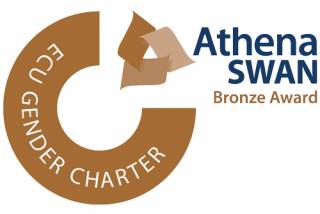17-18th September 2015
Gustave Tuck Lecture Theatre, Wilkins Building, UCL
Organisers: Miriam Leonard, Tim Beasley-Murray
Speakers:
Tim Beasley-Murray, University College London
Andrew Benjamin, Monash University/Kingston University
Adriana Cavarero, University of Verona
Joy Connolly, New York University
Katherine Harloe, Reading University
Bonnie Honig, Brown University
Frisbee Sheffield, Cambridge University
One of the most original figures of the twentieth century, Hannah Arendt (1906-1975) still exerts a profound influence on political thinking today. From her discussion of action, to her critique of totalitarianism, from her declarations about "the banality of evil" to her reclamation of revolution, Arendt remains an essential point of reference for modern political thought. Her work continues to animate debates about democracy, about Israel and Palestine, about feminism and about the nature of political participation - she has even been the subject of a recent film. Yet, Arendt's critique of contemporary politics paradoxically found its inspiration in antiquity. Throughout her work, Arendt draws extensively not just on the writings of Plato and Aristotle but on a much broader conception of the political structures of Greece and Rome. In particular, Arendt turned to the Greek polis as "the space of men's free deeds and living words" to model an egalitarian, pluralist and agonistic politics. This immersion in antiquity was far from backward-looking; rather, Arendt discovered in these Classical civilizations a "forgotten treasure" which opens us on to a new future.
Arendt's thought raises questions about the centrality of Greco-Roman ideas to the constitution of modern politics. Does Arendt's investment in the Greek polis perpetuate a Eurocentric bias? Does her lack of attention to ancient slavery fundamentally undermine her notion of a free politics? Can Arendt move beyond the androcentrism which was constitutive of ancient political organisations? Arendt's relationship to the ancients thus opens up a debate about the complicity between a conception of Western civilization and the contemporary idea of politics.
This conference brings together Classicists, Political Theorists and Arendt scholars to look both at the impact of antiquity on her work and the potential for Arendt to open new avenues for studying the ancient world. The significance of antiquity to Arendt's thought has always been recognized, but its implications for continuing debates in modern political theory have yet to be fully investigated. Conversely, Classicists have become increasingly interested in the legacy of ancient political thought in the modern world but have yet to explore Arendt's writings in any detail. This conference will provide an interdisciplinary forum for exploring the relationship between politics ancient and modern.
Registration
There is no registration fee but attendees must register here
Programme
17 September, 2015
2pm Registration and Welcome
2:30-3:30 Joy Connolly (NYU) 'Purposive Conservation: Arendtian practices of reading'
3:30-4:30 Katherine Harloe (Reading) 'Arendt and the Quarrel of Ancient and Modern'
4:30-5:15 Tea/Coffee
5:15-6:15 Bonnie Honig (Brown) 'Hannah Arendt and the Lost Sabbath: Ancient Practices in Modern Perspective in The Human Condition'
6:30-7:45 Reception in the Flaxman Gallery
18 September
10:30-11:30 Tim Beasley-Murray (UCL) 'Arendt and Thucydides on Speech, Violence and Hope'
11:30-12:30 Frisbee Sheffield (Cambridge) 'Arendt on Plato, Aristotle, and Politics'
12:30-2:00 Lunch (for speakers)
2:00-3:00 Andrew Benjamin (Monash/Kingston) 'The Problem of Authority in Arendt and Aristotle'
3:00-4:00 Adriana Cavarero (Verona) 'Arendt and the Socrates paradigm'
4:00 Tea/Coffee
4:30-5:30 Roundtable and Closing Discussion: John Ackerman (Northwestern) and Kevin Inston (UCL)
For more information, please contact: m.leonard@ucl.ac.uk
We gratefully acknowledge the support of the UCL Centre for Research on the Dynamics of Civilisation (CREDOC), the UCL European Institute, the A.G. Leventis Foundation and the Institute of Classical Studies.
 Close
Close



